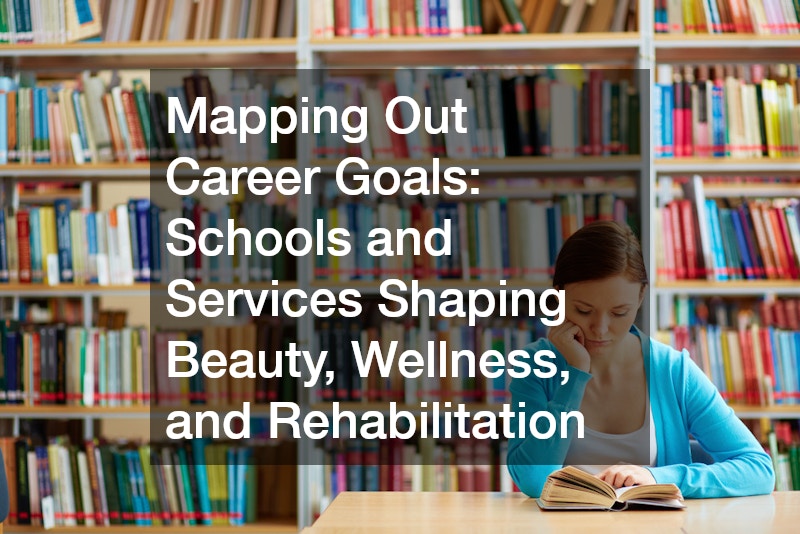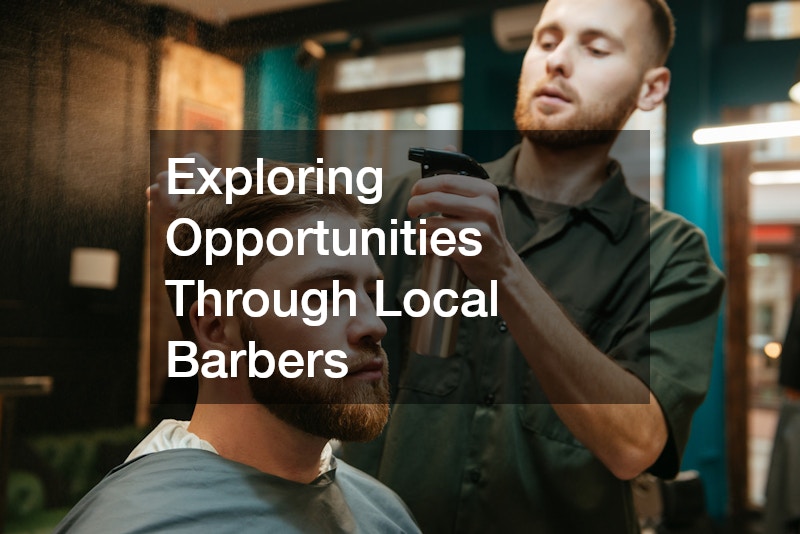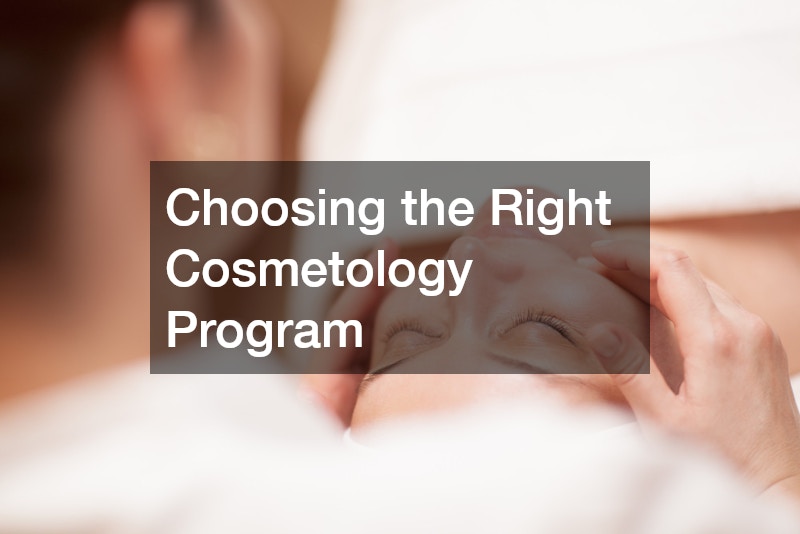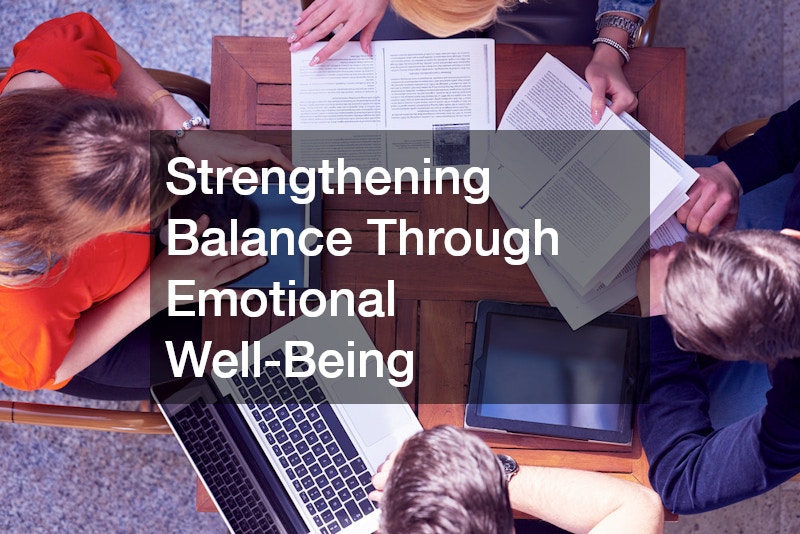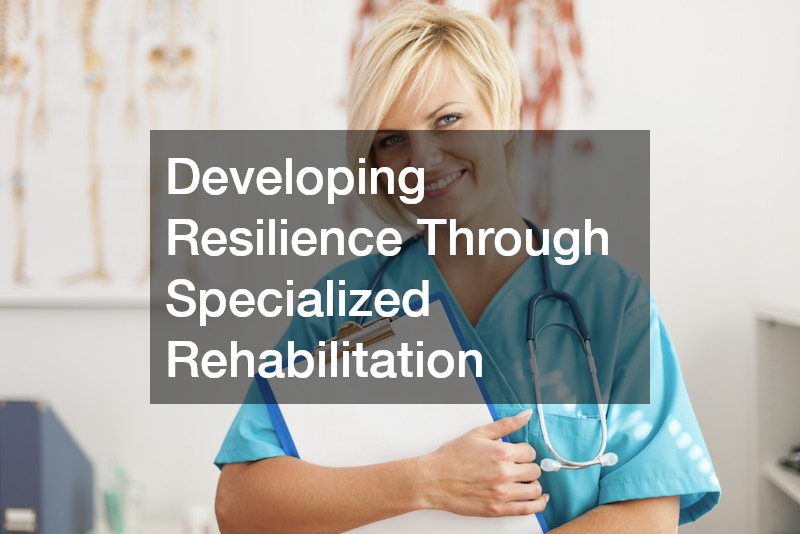
When thinking about professional growth, one of the most important steps is mapping out career goals that align with both personal interests and long-term opportunities. Many industries today offer diverse entry points, from education and training to specialized services that support career and lifestyle development. By identifying the areas that are growing, whether in beauty, health, or rehabilitation, individuals can make informed choices about where to focus their time and energy. The process of creating a career roadmap is not only about choosing a profession but also about understanding the support systems that exist along the way.
In many ways, career planning is about more than a single decision. It is about connecting short-term steps with future possibilities, such as additional training, advanced certifications, or exploring services that complement professional or personal goals. By exploring the pathways available across different industries, people can see how beauty, wellness, and rehabilitation programs intersect with both personal development and wider societal needs. These opportunities provide a structured approach to learning and growth while ensuring that career choices are sustainable, rewarding, and impactful in the long run.
Exploring Opportunities Through Local Barbers
For those considering a path in the beauty industry, barber training provides a solid entry point with consistent demand and practical skill development. When mapping out career goals, individuals often look for opportunities that provide both creative expression and financial stability, and barbering can offer exactly that. The role of a barber is not only about technical expertise but also about cultivating relationships with clients, staying on top of trends, and building a sense of trust through personalized services. This makes barbering a strong option for people who enjoy hands-on work and want a career with immediate customer interaction.
On a more specific level, a local barber school can provide targeted instruction that balances traditional barbering skills with modern techniques. These schools often include training in haircutting, shaving, and grooming, while also offering preparation for licensing requirements. Students benefit from learning in an environment that blends classroom instruction with practical, real-world experience, which helps them transition quickly into the workforce. In addition, barber schools frequently help students connect with local job opportunities, ensuring that their education directly supports their broader career goals.
Advancing Skills With Cosmetology
When mapping out career goals, many people look for opportunities that combine technical skill, artistry, and versatility. A career in cosmetology can offer all three, making it a popular option for individuals who want to work in the beauty industry. Cosmetology is unique because it covers a broad range of services, from hair and nails to skin care, which allows students to develop multiple skill sets. This flexibility gives future professionals the ability to adapt to client needs and adjust to changing trends in the beauty and wellness space.
More specifically, a cosmetology school provides structured programs that teach students how to work professionally in salons, spas, and other beauty-related environments. These schools not only provide technical instruction but also introduce students to the business side of the industry, such as customer service, scheduling, and even entrepreneurship. By gaining exposure to both the creative and operational aspects of the field, students graduate with the ability to step into a variety of roles. For individuals focused on long-term growth, cosmetology training offers a foundation that can support specialized certifications, management opportunities, or even starting their own business.
Choosing the Right Cosmetology Program
When mapping out career goals, it is important to think about the type of training environment that will best support long-term ambitions. A cosmetology school program often determines how prepared students will be to meet industry demands, whether they are seeking a position in a salon, spa, or even exploring opportunities in entrepreneurship. General career planning is about aligning personal strengths with professional training, and cosmetology provides one of the broadest ranges of possibilities for creative, client-focused individuals. With the right education, students can build a career that combines artistry, technical skills, and business knowledge, all while setting themselves up for future growth.
On a more practical level, choosing the right cosmetology school program involves looking closely at curriculum, faculty, and available resources. Some programs emphasize hands-on training in hair and nail care, while others focus more heavily on skincare and specialized services. Prospective students should consider accreditation, graduation rates, and career placement support to ensure that the program meets their goals. The best programs prepare students not just for immediate job opportunities but also for long-term advancement in the industry. By carefully selecting a program that matches both current interests and future aspirations, individuals can take a confident step forward in building a rewarding beauty career.
Building Confidence With Aesthetician Training
Career planning is not limited to technical skills but also includes building the confidence to interact effectively with clients and deliver services that enhance well-being. For those mapping out career goals in the beauty and wellness industries, training in facial services can provide a pathway to both creativity and personal connection. The general appeal of this career direction lies in its ability to combine technical knowledge of skincare with the emotional satisfaction of helping clients look and feel their best. Confidence grows not only from mastering techniques but also from developing the interpersonal skills needed to foster lasting client relationships. An aesthetics school can help with this.
More specifically, training in a facial service program equips students with detailed knowledge of skin types, treatment methods, and product application. Such training often includes practical instruction on techniques like exfoliation, hydration, and rejuvenation, all of which are key in professional spa and wellness environments. Programs also highlight safety and hygiene standards, preparing students to work confidently in regulated environments. As professionals gain experience, they may specialize further in advanced treatments or move toward opening their own businesses. This blend of technical expertise and personal interaction makes facial services a strong option for those who want to build a career based on both skill and meaningful client impact.
Strengthening Balance Through Emotional Well-Being
When mapping out career goals, it is important to recognize that success is not solely defined by professional achievements but also by maintaining personal wellness. Emotional and psychological health plays a crucial role in sustaining long-term career growth, as it supports resilience, focus, and motivation. By acknowledging the importance of mental well-being, individuals create a career plan that is not only ambitious but also sustainable. Integrating wellness into career mapping ensures that goals align with both professional aspirations and a healthy lifestyle, creating balance across all areas of life. You can also learn to be a valuable employee at a med spa, helping with things like semaglutide injections.
On a more specific level, resources dedicated to mental health provide practical support for those navigating stressful industries such as beauty, wellness, or rehabilitation. Access to counseling, stress management tools, and wellness programs helps individuals remain consistent in their career journeys. Professionals who prioritize this aspect of care often experience improved focus and productivity, which allows them to grow their skills more effectively. By incorporating attention to mental health into career planning, individuals ensure that they are building a path that values both achievement and personal well-being.
Enhancing Wellness Through Hydration Therapy
As individuals focus on mapping out career goals, it becomes clear that physical health and vitality play a key role in supporting professional ambitions. Services like hydration therapy have become increasingly popular because they directly address the body’s energy, recovery, and overall balance. Taking steps to invest in personal wellness ensures that individuals have the stamina and clarity needed to pursue long-term success. By making wellness part of the career-planning process, professionals are able to stay energized and capable of meeting the demands of education, training, and eventual career growth.
On a more specific level, an IV therapy center provides treatments designed to deliver vitamins and hydration directly into the bloodstream, supporting faster recovery and improved wellness outcomes. For those working or training in demanding fields, such services can make a meaningful difference in maintaining energy levels and focus. Exposure to health-oriented services like this also creates opportunities for career specialization, particularly for those who want to work in environments that combine beauty, wellness, and healthcare. By integrating such services into their broader understanding of wellness, individuals ensure that their career goals are supported by a strong foundation of physical health.
Developing Resilience Through Specialized Rehabilitation
When mapping out career goals, many individuals focus primarily on educational programs and training, but long-term success often requires more than technical expertise. Building resilience is just as important, especially in careers that demand high levels of energy, creativity, and adaptability. Specialized rehabilitation resources provide a foundation for both physical and cognitive recovery, ensuring that professionals can remain strong and capable throughout their careers. Considering how health influences professional growth helps individuals make smarter choices about their career trajectory. By acknowledging the value of rehabilitation services in a career plan, people create strategies that protect their long-term stability and ability to perform at their best.
On a more specific level, neuro rehab centers are designed to support individuals who need assistance with neurological conditions or recovery after injury. These centers combine medical expertise with therapeutic practices to help patients regain independence, improve mobility, and strengthen mental clarity. For someone pursuing a career in wellness or healthcare, understanding how these centers operate can open doors to rewarding roles in patient care or program development. Exposure to rehabilitation programs also helps professionals recognize the importance of holistic recovery, which can be directly applied to their own personal growth. By integrating knowledge of specialized rehabilitation into their career mapping, individuals prepare for challenges and build the resilience needed to thrive in demanding fields.
Achieving Growth Through Comprehensive Recovery Services
For many people mapping out career goals, the concept of growth extends beyond acquiring new skills or advancing in a job. True growth also comes from maintaining physical health, overcoming challenges, and ensuring that there are resources available when setbacks occur. Comprehensive recovery services highlight how interconnected health and professional success really are, as they provide the tools to rebuild strength, motivation, and overall well-being. When career planning includes consideration of these services, individuals are better equipped to handle obstacles without losing momentum on their long-term goals. The ability to recover and adapt becomes a defining feature of lasting success.
On a more specific level, a rehabilitation therapy center offers treatments and programs that help individuals recover from physical injuries, surgeries, or chronic conditions. These centers often provide a wide range of services, from physical and occupational therapy to specialized recovery programs tailored to individual needs. For aspiring professionals, especially those considering careers in healthcare or wellness, this environment can provide not only inspiration but also valuable career opportunities. Exposure to rehabilitation centers may encourage individuals to specialize in therapies that align with their interests or to consider leadership roles in developing patient-focused programs. By making comprehensive recovery part of career planning, individuals build a pathway that prioritizes both personal well-being and professional advancement, ensuring that their goals remain achievable over time.
Mapping out career goals is a process that extends far beyond choosing a single path. It requires a thoughtful look at the resources, training, and services that support both professional aspirations and personal well-being. By exploring opportunities in beauty education, wellness services, and rehabilitation programs, individuals gain a clearer sense of how their careers can evolve over time. Each of these areas provides a stepping stone, whether through technical training, advanced certifications, or services that enhance health and resilience. The journey is about creating a balanced plan that blends ambition with sustainability, ensuring that goals remain achievable even as life circumstances change.
Ultimately, the most effective career planning involves recognizing the value of both education and support systems. A well-rounded approach not only prepares individuals for immediate opportunities but also builds the foundation for long-term growth. By including elements such as emotional health, physical wellness, and rehabilitation in their planning, people set themselves up for success in industries that are both rewarding and resilient. With the right combination of training and support, mapping out career goals becomes less about uncertainty and more about building a future with confidence and purpose.
